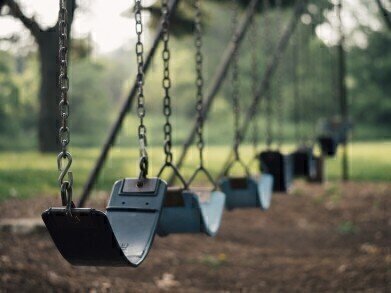Air Clean Up
Should Children Be Banned from London's Playgrounds?
Jan 14 2017
A prominent Labour Party peer has caused controversy this month by claiming that London children should be prohibited from playing outside during times of particularly poor air quality.
Baroness Maggie Jones, who served as the Labour Party Chair from 2000-01, has called for the government to install air quality monitors in schools across the capital, giving teachers the ability to decide when external pollution is too serious for young ones to venture outside.
A threat to young lungs
London has long struggled with air quality issues, with the capital running afoul of EU regulations for several years running and accruing hundreds of millions of pounds’ worth of penalties in the process. Far more worrying than its economic impact, however, is the debilitating effect that the excessive pollution could be having on the next generation.
Since children’s lungs are smaller and less developed than an adult’s, they are more susceptible to becoming irreparably damaged by exposure to high levels of contaminants such as nitrogen oxides (NOx) and particulate matter 2.5 (PM2.5). Indeed, recent studies show that not only are young lungs at risk, but also that air pollution could increase the incidence of mental illness in children. Naturally, this has prompted widespread concerns about the state of London’s airwaves from parents all over the city.
The plan to tackle air pollution set out by the government last year was deemed to be illegal by the High Court, with the Conservatives being ordered to compile a new one in 2017.
Drastic measures
At present, local councils are responsible for the installation of air quality monitoring equipment as and when they see fit, but Baroness Jones says they are too short on monetary funds to achieve what is necessary and that the government must step in to make the monitors compulsory in all schools.
“If a reading is high the obvious thing is to introduce some controls in terms of parking near the school and for people dropping children off. If there are days when there are extra-high levels of air quality they could keep the children indoors,” she explained. “It would also help to raise awareness of the health threat to their children and the need for urgent government action to address this public health crisis.”
Baroness Jones’ suggestions were met with little enthusiasm by the current Environment Minister, Lord Gardiner, who argued that councils were in a better position to judge on case-by-case bases than the government.
“Their local knowledge and interaction with the communities that they serve mean that they know the issues on the ground in detail and the solutions that are best suited to local circumstances,” he said in a statement.
Private enterprise the key?
With the government unwilling to help, it seems that private enterprise might be the only viable solution to monitoring London’s air effectively. To date, the air quality company CleanSpace have installed carbon monoxide monitors in 10 schools across the capital, as they aim to create the most comprehensive map of pollution in London.
“Air quality is something that can be tackled,” affirmed Lord Drayson, founder of CleanSpace. “We’ve got a situation where modern technology can give us the street-by-street pollution information which can arm people and politicians with the information to take action.”
However, even if Baroness Jones is successful in her aim to install monitors in every school in the capital, it’s unclear that keeping the children indoors would be hugely beneficial. A recent study has indicated that indoor air pollution is up to three times more noxious than that found on the streets, with more people being killed from indoor pollutants than outdoor ones every year.
Events
Nov 26 2024 Paris, France
Nov 27 2024 Istanbul, Turkey
H2O Accadueo International Water Exhibition
Nov 27 2024 Bari, Italy
Biogas Convention & Trade Fair 2024
Nov 27 2024 Hanover, Germany
Dec 11 2024 Shanghai, China







-as-feedstock.jpg)






